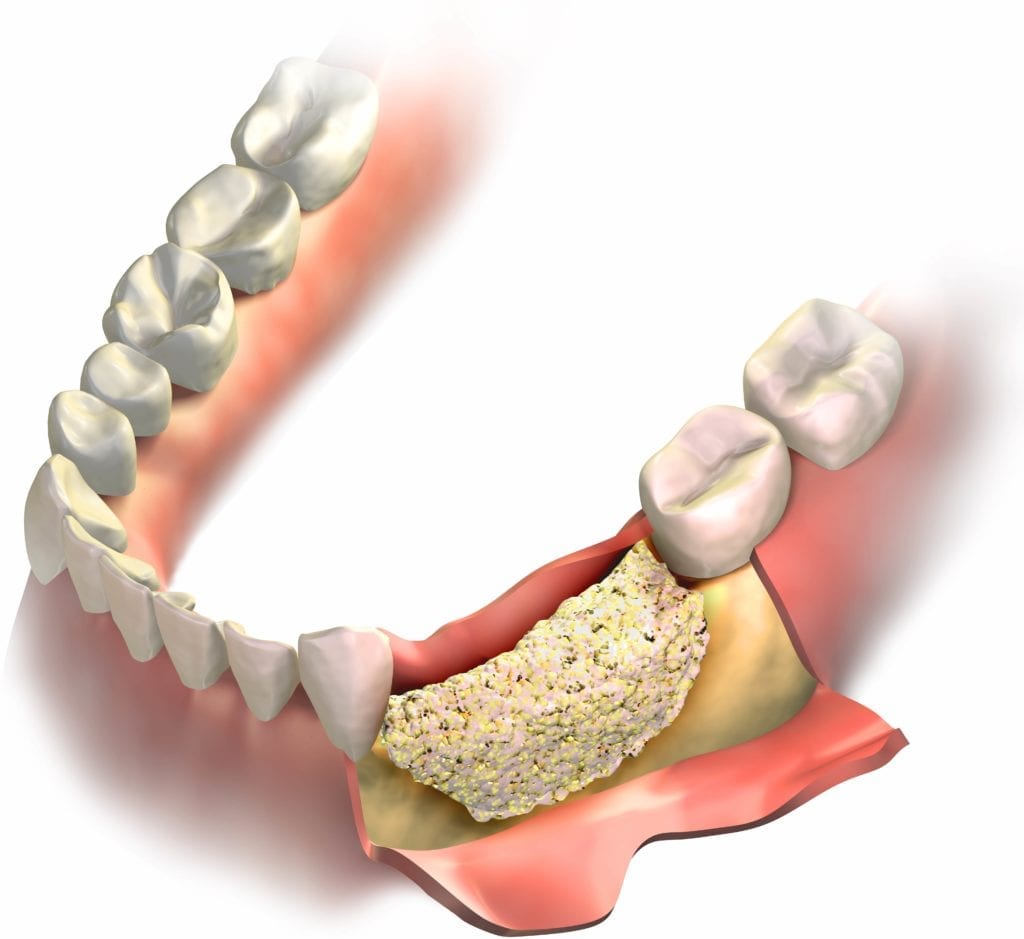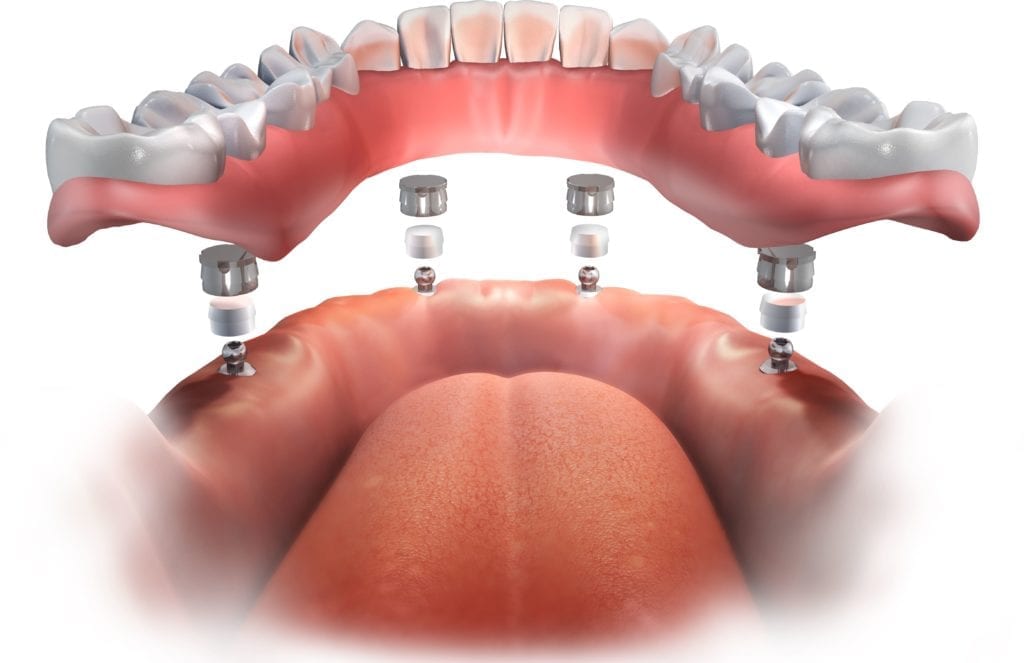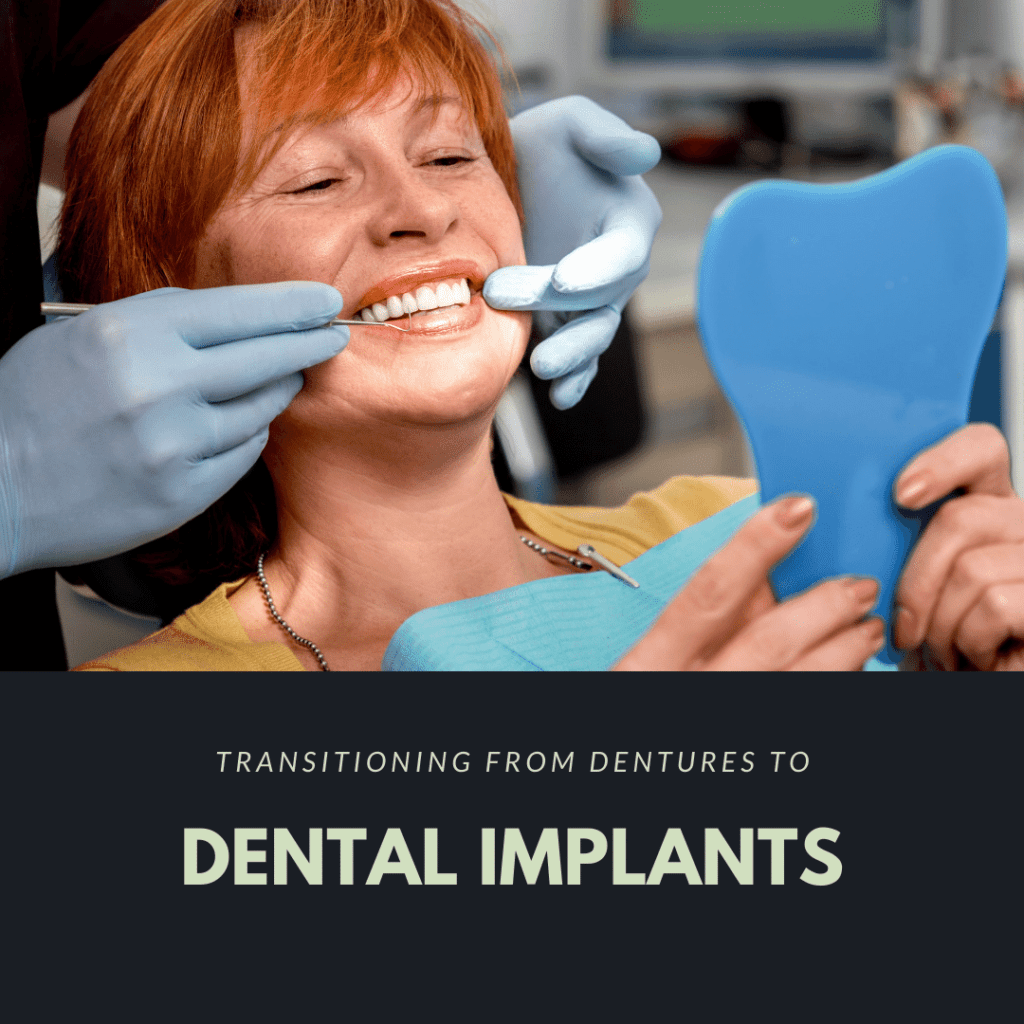Have you been thinking about replacing your dentures with dental implants? While dentures are an option to replace multiple missing teeth, they are not right for everyone and some people find that out after having dentures for a few years. When it eventually comes time to have your dentures relined, you may be wondering whether it is possible to make the switch from dentures to dental implants. Here is what you need to know:
Reasons to Switch from Dentures to Dental Implants
First and foremost, we must look at some of the main reasons why people choose to switch from dentures to dental implants:
- Dental implants are placed in the jawbone and function like natural teeth, while dentures are designed to sit on top of the gums. The main difference between these two methods is that dental implants are permanent, stationary, and do not move. Conversely, dentures are removable, prone to slipping or shifting, and can irritate the gums.
- Dental implants look and function more like natural teeth. In fact, dental implants are so strong that they can help you chew tough foods that you are unable to eat with dentures.
- Dental implants preserve the jawbone and do not require replacement. Dentures cannot maintain the jawbone and need to be replaced as the bone deteriorates and changes shape, causing the denture to no longer fit.
- Dental implants save you money overtime since they do not require multiple replacements like dentures do. In fact, dental implants rarely ever need to be replaced.
Can I transition from dentures to dental implants?

In order to make the transition from dentures to dental implants, you first need to schedule an appointment with your local implant dentist to determine if you are an ideal candidate. Your dentist will perform dental x-rays in order to evaluate your underlying bone mass. Depending on how long you have had missing teeth and dentures, you may or may not have enough bone mass to support a dental implant. In most cases, inadequate bone mass can be remedied by having a bone graft performed before dental implant placement.
A bone graft is a supplemental procedure where bone material will be placed in areas of low bone mass. Over the next few months, the bone material will grow into new bone that increases the bone mass of that particular area. Generally speaking, a bone graft must be performed about 4-6 months before dental implants can be safely placed. If you need a bone graft, you can think of this as the first step in the transition from dentures to dental implants.
What to expect during the transition from dentures to dental implants:
Once you have enough bone mass to support dental implants, your implant dentist will schedule a time for you to have implants placed. To place dental implants, a minor oral surgery is needed. The procedure consists of your dentist making a small incision in the gums to access the jaw bone, shaping the necessary tooth socket, and drilling the implant screws in place. If you are having dentures replaced by dental implants, your dentist will likely recommend an implant-supported denture. In most cases, this type of prosthetic requires the placement of about 4-6 dental implants per arch. Therefore, the process will be repeated until the total number of dental implants have been placed.

After your implants are placed, they will need to fuse in place over a period of 3-6 months. During this time, your dentist will carefully monitor your progress and place you on a temporary soft foods diet. It is important that you do not disturb your implants by placing too much pressure on them. Once your implants have fused with the surrounding jawbone, then you will be able to return to your usual diet. In most cases, the temporary diet restrictions are the hardest part of getting dental implants. However, many patients note that it is definitely worth it.
Caring for your dental implants is also a transition from dentures. With dentures, you were expected to remove the denture at night to soak in denture solution. Dental implants, on the other hand, will remain permanently in your mouth. This means that you will care for dental implants the same that you would care for natural teeth by brushing and flossing. The main exception is that you will need to be sure to floss underneath the junction between the gums and dental crown.

Dr. Admar holds dual certificates — a Bachelor of Dental Surgery (BDS) in 2010 from India and a Doctor of Dental Surgery (DDS) in 2014 from Canada. He is now a full time practicing dentist in Kamloops where he provides a variety of services. Dr. Admar spends hundreds of hours in continued dental education to stay up to date in cosmetic and implant dentistry and he has achieved several advanced qualifications.


